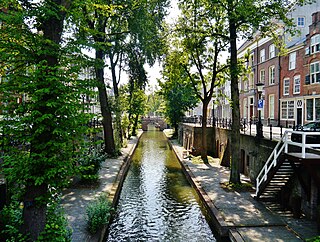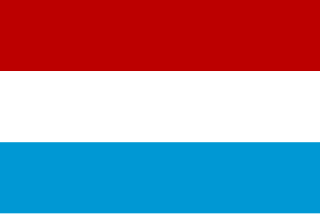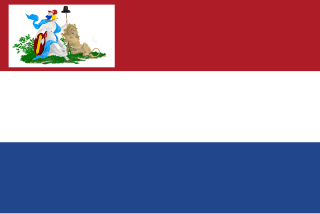
There are currently twelve provinces of the Netherlands, representing the administrative layer between the national government and the local municipalities, with responsibility for matters of subnational or regional importance.

Willem Drees Sr. was a Dutch statesman who served as Prime Minister of the Netherlands from 7 August 1948 to 22 December 1958. He was the first Leader of the Labour Party (PvdA), assuming the position from 9 February 1946 until the end of his premiership.

The Ministry of Health, Welfare and Sport is the Dutch Ministry responsible for public health, health care, quality of life, social work and sport. The Ministry was created in 1951 as the "Ministry of Social Affairs and Health" and had several name changes before it became the "Ministry of Health, Welfare and Sport" in 1994. The Ministry is headed by the Minister of Health, Welfare and Sport, currently Hugo de Jonge (CDA), assisted by one State secretary, currently Paul Blokhuis (CU), and the Minister for Medical Care, currently Bruno Bruins (VVD).

The Ministry of Education, Culture and Science is the Dutch Ministry responsible for education, culture, science, research, gender equality and communications. The Ministry was created in 1918 as the Ministry of Education, Arts and Sciences and had several name changes before it became the Education, Culture and Science in 1994. The Ministry is headed by the Minister of Education, Culture and Science, currently Ingrid van Engelshoven.
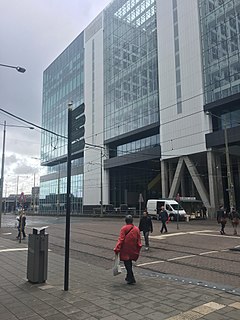
The Ministry of Foreign Affairs is the Dutch Ministry responsible for Foreign relations, Foreign policy, International development, International trade, Diaspora and matters dealing with the European Union, NATO and the Benelux Union. The Ministry was created in 1798 as the Department of Foreign Affairs of the Batavian Republic. In 1876, it became the Ministry of Foreign Affairs. The Minister of Foreign Affairs is the head of the Ministry and a member of the Cabinet of the Netherlands. The current Minister is Stef Blok. The Minister for Foreign Trade and Development Cooperation is a Minister without portfolio within the Ministry of Foreign Affairs. The current Minister is Sigrid Kaag.
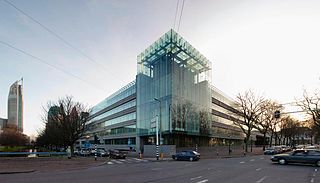
The Ministry of Finance is the Dutch Ministry responsible for Economic policy, Monetary policy, Fiscal policy, Tax policy, Incomes policy, Regulations, Government budget and the Financial market. The Ministry was created in 1798 as the Department of Finance of the Batavian Republic. In 1876, it became the Ministry of Finance. The Minister of Finance is the head of the Ministry and a member of the Cabinet of the Netherlands. The current Minister is Wopke Hoekstra.

The Ministry of Social Affairs and Employment is the Dutch Ministry responsible for Social Affairs, Employment, relations between Employers and Employees, Social security, Trade unions and Emancipation. The Ministry was created in 1918 as the Ministry of Labour and had several name changes before it became the Ministry of Social Affairs and Employment in 1981. The Ministry is headed by the Minister of Social Affairs and Employment, currently Wouter Koolmees.
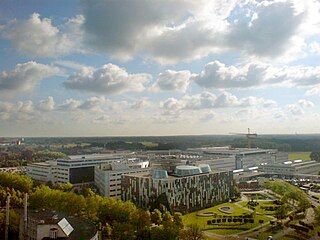
The University Medical Center Utrecht is the main hospital of the city of Utrecht, Netherlands. It is affiliated with the Utrecht University. Since the foundation of the university in 1636 an academic hospital has existed in various forms. Nowadays the UMC Utrecht comprises the academic hospital, the faculty of Medicine as well as the Wilhelmina Children's hospital. In total approximately 10,000 people work at the UMCU including medical staff, nursing staff, residents, support personnel and researchers, making it one of the largest hospitals in the Netherlands.

Healthcare in the Netherlands can be divided in several ways: firstly in three different echelons; secondly in somatic versus mental healthcare; and thirdly in "cure" versus "care". Home doctors form the largest part of the first echelon. Being referred by a first echelon professional is frequently required for access to treatment by the second and third echelons, or at least to qualify for insurance coverage for that treatment. The Dutch health care system is quite effective in comparison to other western countries but is not the most cost-effective. Costs are said to be high because of over-use of in-patient care, institutionalised psychiatric care and elderly care.

Heli Holland is a Dutch helicopter operator. Services provided include VIP transport, offshore transport, flight training, aerial photography, medical flights, freight transport and aerial inspection flights. It also performs helicopter maintenance and trading. Operating bases are Lelystad Airport, Amsterdam Heliport and a company owned heliport in Emmer Compascuum, which is also the location of the company's head office. It is the largest helicopter operator in the Netherlands.

The Tax and Customs Administration is the tax collection and customs service of the government of the Netherlands. Part of the Ministry of Finance. The Dutch tax authorities are charged with levying and collecting taxes in the Netherlands. With the Dutch tax authorities, the Dutch tax authorities are therefore simply referred to as national tax authorities. The Dutch Tax Authorities were founded as an organization in 1805.

Royal PostNL is a mail, parcel and e-commerce corporation with operations in the Netherlands, Germany, Italy, Belgium, and the United Kingdom. It provides universal delivery in the Netherlands, and is publicly listed at Euronext Amsterdam. The company was known as TNT N.V. until TNT Express demerged from it in May 2011, and the remainder of the company was renamed PostNL.
Ernst Nicolaas Herman Jansen,, later known as Ernst Jansen Steur, is a former Dutch neurologist, who garnered notoriety for misconduct and lost his license to practice medicine.
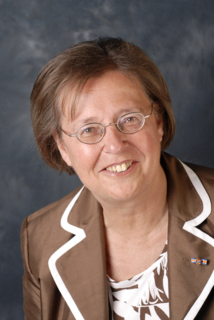
Josina Maria "Jozien" Bensing is a Dutch clinical psychologist. Bensing was director of the Nederlands Instituut voor Onderzoek van de Gezondheidszorg (NIVEL) between 1985 and 2008. Since 1993 she has been a professor of clinical and healthcare psychology at Utrecht University. Bensing was a winner of the 2006 Spinoza Prize.
The Flemish Care Inspectorate is a part of the Department of Welfare, Public Health and Family of the Flemish Government. The Flemish Government is the executive branch of the Flemish Community of Belgium. In Belgium, the Communities are responsible for the inspection of health and welfare services and establishments. The Care Inspectorate consists of two complementary divisions of the department: one for the inspection of services for disabled people and child care services, and one for the inspection of welfare services, health services and financial matters. Together, they inspect all services and establishments in these domains that are recognised, licensed or subsidised by the department or any agency associated with it. The Care Inspectorate also inspects disabled people who receive a so-called personal assistance budget or financial compensation for assistive tools.
An election to the Senate of the Netherlands will be held on 27 May 2019, two months after the provincial elections.


